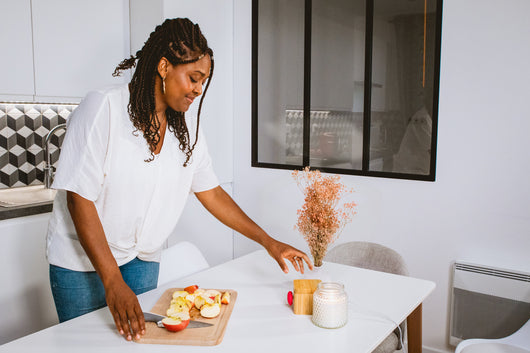Communication is the cornerstone of any successful relationship, particularly in marriage. It allows couples to understand one another, resolve conflicts, and share their lives meaningfully. However, maintaining healthy communication in a marriage can be challenging, especially as life becomes busier or stress levels increase. In this article, we’ll explore ten practical tips to help you and your partner improve communication, strengthening the bond between you.
Table of Content
The importance of Effective Communication in Marriage
Good communication in marriage is crucial because it fosters emotional intimacy, resolves conflicts before they escalate, and builds a foundation of trust. Couples who communicate well tend to have more fulfilling relationships, better problem-solving abilities, and deeper emotional connections. Without effective communication, misunderstandings and resentment can easily accumulate, leading to strain or even separation.
Tips for Improving Communication in Your Marriage
Practice Active Listening
Express Yourself Clearly and Calmly
Make Time for Meaningful Conversations
Understand Nonverbal Communication
Practice Empathy
Avoid Defensive Responses
Be Open to Compromise
Resolve Conflicts Respectfully
Use Technology Wisely for Better Communication
Seek Professional Help When Needed
Practice Active Listening
1. What Is Active Listening?
Active listening goes beyond simply hearing words; it involves fully focusing on the speaker, understanding their message, and responding thoughtfully. In marriage, active listening can help partners feel valued and understood, preventing miscommunication and fostering deeper connections.
2. How to Implement Active Listening in Your Marriage
To practice active listening, put aside distractions such as phones or television and focus entirely on your partner when they are speaking. Maintain eye contact, nod to show understanding, and avoid interrupting. When your partner finishes, summarize what they said to ensure you’ve understood their perspective correctly.

Express Yourself Clearly and Calmly
1. The Value of Using "I" Statements
Instead of blaming your partner with "You never listen," use "I" statements such as, "I feel hurt when I'm not heard during our conversations." This approach reduces defensiveness and fosters a more open dialogue.
2. Managing Emotions While Communicating
When emotions run high, it's easy to say things that we later regret. Take a moment to breathe and collect your thoughts before speaking. Staying calm helps prevent arguments from escalating and ensures a more constructive conversation.


Make Time for Meaningful Conversations
1. Setting Aside Distraction-Free Time for Communication
Busy schedules can often lead to superficial conversations that don’t dive into important matters. Schedule regular "couple time" where both of you can talk without distractions. Whether it’s during dinner, on a walk, or before bed, having uninterrupted time to communicate is crucial.
2. Prioritizing Regular Check-ins with Your Partner
In addition to quality time, having regular check-ins helps ensure you and your spouse are on the same page. These conversations can be about your relationship, future plans, or any concerns either of you may have, allowing you to address issues before they become major problems.

Gift ideas for married couples
Understand Nonverbal Communication
1. The Power of Body Language
Nonverbal communication, such as facial expressions, posture, and gestures, speaks volumes in any conversation. In marriage, paying attention to these cues can reveal underlying emotions or issues that may not be spoken aloud.
2. Matching Nonverbal Cues with Verbal Messages
Ensure that your body language aligns with your words. For instance, saying “I’m fine” while avoiding eye contact can create confusion. Instead, try to be consistent in your verbal and nonverbal expressions to avoid misunderstandings.

Further Readings
→ Alphabet Dating Adventures: A-Z Date Ideas for every couple
Practice Empathy
1. How to Empathize with Your Partner
Empathy means putting yourself in your partner’s shoes and trying to understand their feelings and perspective. When your partner shares something, try to respond with compassion and validation, such as saying, “I can see how that would make you upset.”
2. Techniques for Emotional Validation in Marriage
Validating your partner’s feelings, even if you don’t fully agree with their point of view, shows that you care about their emotional experience. Simple affirmations like “I understand why you feel that way” can strengthen emotional bonds.

“Kind words can be short and easy to speak, but their echoes are truly endless.”
Avoid Defensive Responses
1. Recognizing Triggers for Defensiveness
We all have triggers that can make us defensive, whether it’s criticism, feeling misunderstood, or stress. Recognizing these triggers is the first step in avoiding defensive behavior that can shut down productive communication.
2. How to Respond Calmly in Difficult Conversations
When faced with criticism or a sensitive topic, instead of reacting defensively, take a deep breath and focus on understanding the other person’s point of view. Phrases like “I see your point” or “Let’s talk about this calmly” can help defuse tension.

Be Open to Compromise
1. The Role of Flexibility in a Healthy Marriage
Marriage is a partnership that requires compromise from both sides. Being flexible and open to finding solutions that work for both of you can prevent many conflicts and help both partners feel heard and respected.
2. Balancing Your Needs with Your Partner’s Needs
Compromise doesn’t mean always giving in; it’s about finding a balance between both partners’ needs. When negotiating a solution, consider what’s most important to both of you and find a middle ground that makes both of you feel satisfied.

Resolve Conflicts Respectfully
1. The Importance of Conflict Resolution Skills
Conflict is inevitable in any relationship, but it’s how you handle it that matters. Good conflict resolution skills involve staying calm, focusing on the issue rather than attacking your partner, and working together to find a solution.
2. Strategies for De-escalating Arguments
When a conversation starts to heat up, suggest taking a break to cool off before continuing. This prevents things from being said in anger. Once both of you are calm, approach the issue again with a focus on resolution rather than winning the argument.

Use Technology Wisely for Better Communication
1. How Digital Tools Can Enhance Communication
Technology can be a great tool for staying connected, especially when life gets busy. Sending thoughtful messages, sharing daily updates via texts, or scheduling video calls when apart can keep the communication flowing.
2. Establishing Healthy Boundaries for Technology Use
While technology can be helpful, it’s essential to set boundaries, especially when it starts to interfere with face-to-face communication. Set aside specific times when phones or laptops are off-limits, and focus entirely on your spouse.
3. Strengthening Emotional Connection with the Lovebox
The Lovebox is a unique way to use technology to enhance emotional connection in a marriage. It allows you to send heartfelt messages, drawings, or photos to your spouse, creating a thoughtful and personal touch in your communication. It transforms everyday communication into meaningful moments, helping you nurture a stronger bond.
Seek Professional Help When Needed
1. When to Consider Marriage Counseling
If communication issues persist despite your best efforts, it may be time to seek professional help. Marriage counselors can provide tools and techniques for improving communication and resolving deeper issues.
2. How a Professional Can Improve Communication Skills
Therapists are trained to help couples uncover the root of communication problems and teach effective strategies for listening, expressing emotions, and resolving conflicts in a healthy way.
Common Communication Pitfalls to Avoid in Marriage
Overcoming Communication Barriers
Barriers such as distractions, assumptions, or emotional baggage can prevent healthy communication. Identifying and addressing these barriers is crucial for maintaining a strong connection with your partner.
Avoiding Misunderstandings and Assumptions
Assuming you know what your partner is thinking without clarifying can lead to misunderstandings. Instead, ask open-ended questions and listen to their responses to avoid assumptions.
Frequently Asked Questions
How do I communicate with a partner who doesn't like to talk?
Start with light, non-confrontational topics and express interest in their thoughts. Gradually, your partner may become more comfortable opening up.
How can I improve communication during an argument?
Take breaks if emotions get too intense, and focus on listening to your partner’s point of view rather than just defending your own.
What are the 5 C's of communication in marriage?
The 5 C's of communication in marriage are Clarity, Conciseness, Consistency, Courtesy, and Confidence. These principles help ensure that your messages are clear, respectful, and understood by your partner, fostering healthier interactions.
What are the 5 A's of marriage?
The 5 A's of marriage include Attention, Acceptance, Appreciation, Affection, and Apology. These elements build a foundation of love and mutual respect, helping partners nurture their relationship and navigate challenges together.
What are the 7 keys to marriage?
The 7 keys to a successful marriage are Communication, Trust, Respect, Commitment, Love, Patience, and Compromise. When couples focus on these core principles, they create a lasting, fulfilling partnership.
What are the 4 golden rules of marriage?
The 4 golden rules of marriage are Respect, Honesty, Support, and Compromise. These values are essential for maintaining a strong bond, resolving conflicts, and creating a partnership based on mutual understanding and care.
What are the signs of poor communication in marriage?
Frequent misunderstandings, feelings of loneliness, and unresolved conflicts can all indicate communication issues.
How do I encourage my spouse to open up emotionally?
Create a safe, non-judgmental environment where your partner feels comfortable sharing their feelings without fear of criticism.
Can technology hurt communication in my marriage?
Overuse of technology, especially when it distracts from face-to-face interactions, can hinder meaningful communication.
Should we see a counselor if communication isn't improving?
Yes, if you’ve tried improving communication without success, a counselor can help provide new perspectives and techniques.














